
Part 5: Fall 2017 to Spring 2022 |
|
Smaller pages? From this point the pages in this online sketchbook are formatted to be viewed more easily on phones, since that seems to be the trend now, at least here in Japan. It was around this time that I moved to sketching smaller, so many of the images are not so different from the original sizes. If you are viewing these pages on a larger screen, now you can use a split screen and look at something else at the same time if you get bored! As for the previous pages, I don't think I will re-format them since they involve larger sketches. If you are viewing those pages on a phone, you'll have to hold the phone sideways. But that works pretty well, actually. Back to ATC / ACEO format I've been playing with the 2.5 X 3.5 inch (64 X 89 mm) trading card format again. This is the size of Artist Trading Cards (ATC). For the past few years, I've been sketching in various other sizes -- all pocket size -- such as Moleskine and Stillman & Birn sketchbooks, no-name spiral bound sketchbooks, and 3X5 inch pages in a 6-ring binder. I rely on the subways and trains in Japan to get around, and therefore must carry everything I will need for the day in my pockets or a bag, so I prefer a small format. The smallest format I can use for sketching is Japanese meishi (business card) size sketch cards which are 55mm x 91mm (2.2 inches x 3.6 inches). The reason I switched from the trading card format to Japanese business card size several years ago was the abundance of storage and display items and accessories (OK, toys) available in Japan where I live. You can even buy cheap picture frames for cards this size. In the U.S. a standard business card would be 2 inches x 3.5 inches, although there is really no standard size. But I have come to appreciate the fact that the trading card format is a universal standard since it is the size of baseball cards, and game related cards -- including Japanese games and anime, so it is just as easy to find trading card binders and storage boxes even in Japan, usually right next to the business card items in most shops. As you can see from the photo below, Trading cards have a more square area than Japanese business cards (meishi pronounced MAY-SHEE), so you have a little more freedom in choosing subject matter. 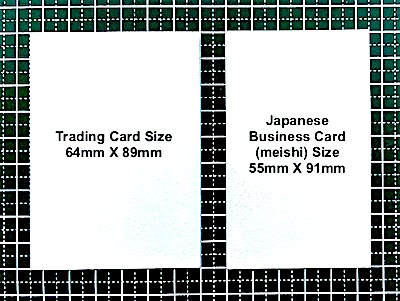
All my sketch tools are small enough to go everywhere in my shirt pocket. I'm using the same meishi case palette from before, and keep my cards in a vinyl card carrier with a small clip so it can double as a clipboard when I open it. I always have one card clipped to it, ready for sketching at a moment's notice. I'm still using rings of tissue paper around my thumb to quickly wipe paint as I sketch. 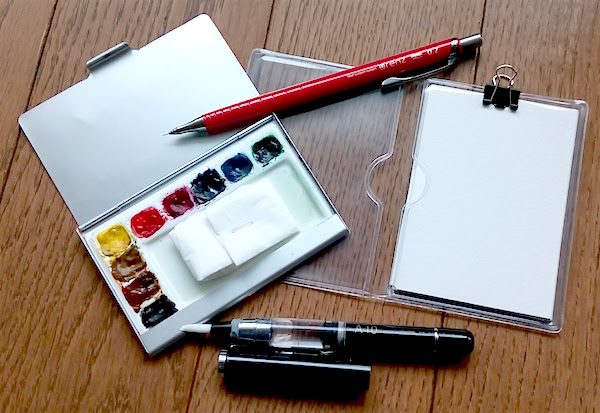 The brush is the Blue Heron Arts piston waterbrush. They come in two sizes, and the smaller size (model number A10 I also have several of larger size on hand (model number A20 Both sizes come to a fine point (the brush in the photo is resting with the hairs spread out against the palettte). The mechanical pencil is the Pentel Orenz Ultra Fine with 0.2mm lead. 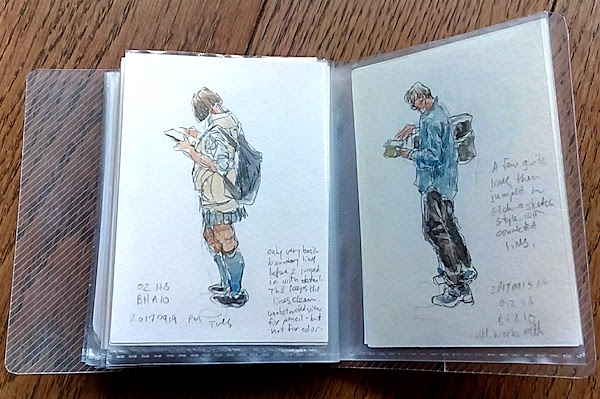
I also keep a small binder in my back pocket for showing off my more successful sketches. At the school where I teach, students are always asking to see my latest sketches. To my surprise, a woman at the PTA bazaar told me recently that she was standing near me on the subway a few weeks ago when I was sketching a high school girl, and I was able to show her the finished sketch then and there: 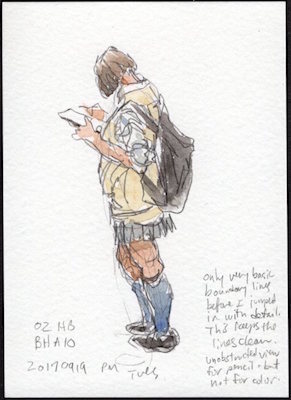
Here are two more recent trading card-size sketches from my evening subway ride (the morning ride is too crowded to sketch anything). 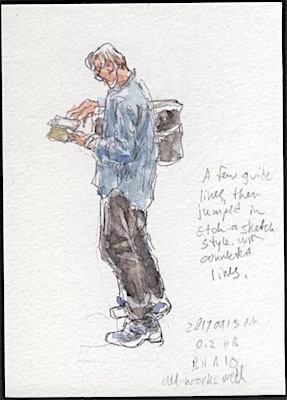
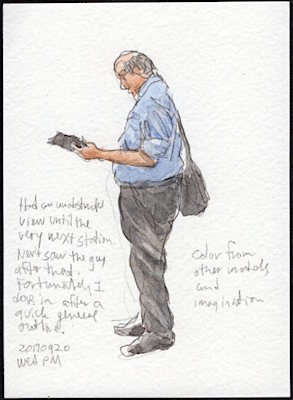
The models above were standing at a comfortable distance, but often I don't have the luxury when the train is a little crowded, and have to sketch a model who is much closer, as you can tell from the position of the legs: 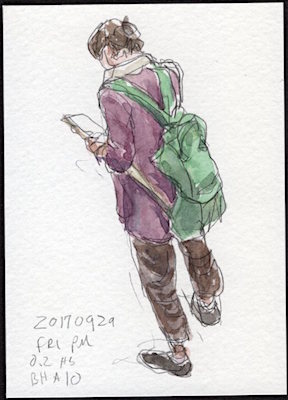
But the most common problem is that the model is either soon blocked by another person, or sits down when another commuter vacates a seat, or simply gets off the subway soon after I start the sketch. The next pose was so good that I went ahead and colored it even thought I could only get down a few pencil scribbles in less than a minute: 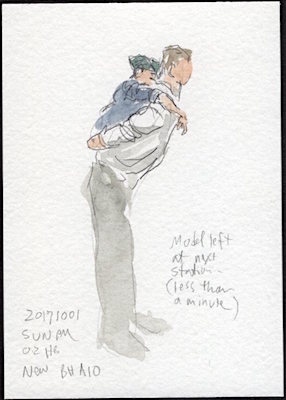
I've also gone back to sketching outdoors on my days off (I've sketched these same iconic landmarks many times in the past). These sketches are small enough that I don't need to find a place to sit, but can stand for the entire sketch and can finish before my short attention span runs out: 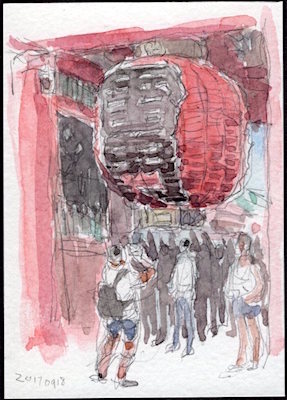
This is the Kaminari Mon (Thunder Gate) in Asakusa, Tokyo's old neighborhood with the "samurai" feeling still in the air. 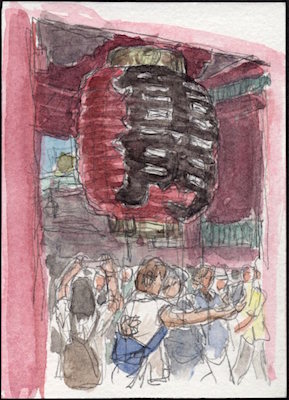
Here is the same Kaminari Mon from a different angle. 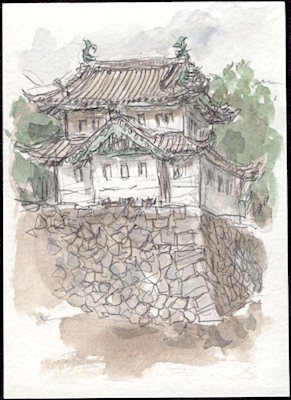
This is Tatsumi Turret which sits on the wall overlooking the moat on the Edo Castle grounds. It's probably the most photographed building in the area. 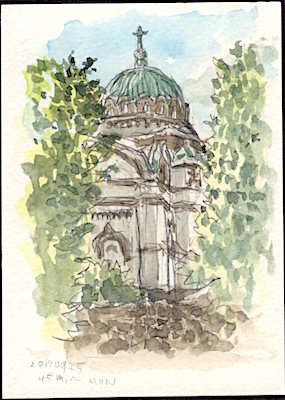
This is Holy Resurrection Cathedral, a.k.a. "Nikolai-do" which is the cathdedral for the Russian Orthodox Church in Tokyo. |
|
Note about Amazon links: If you click on a link and buy something at Amazon, a few pennies per dollar goes into my Amazon account, so instead of letting Amazon keep it all, you can pry a few pennies from their fingers make them share it with me. Any other vendor links I may put on this website are just for your convenience. |
|
|
|
Next page >>
|